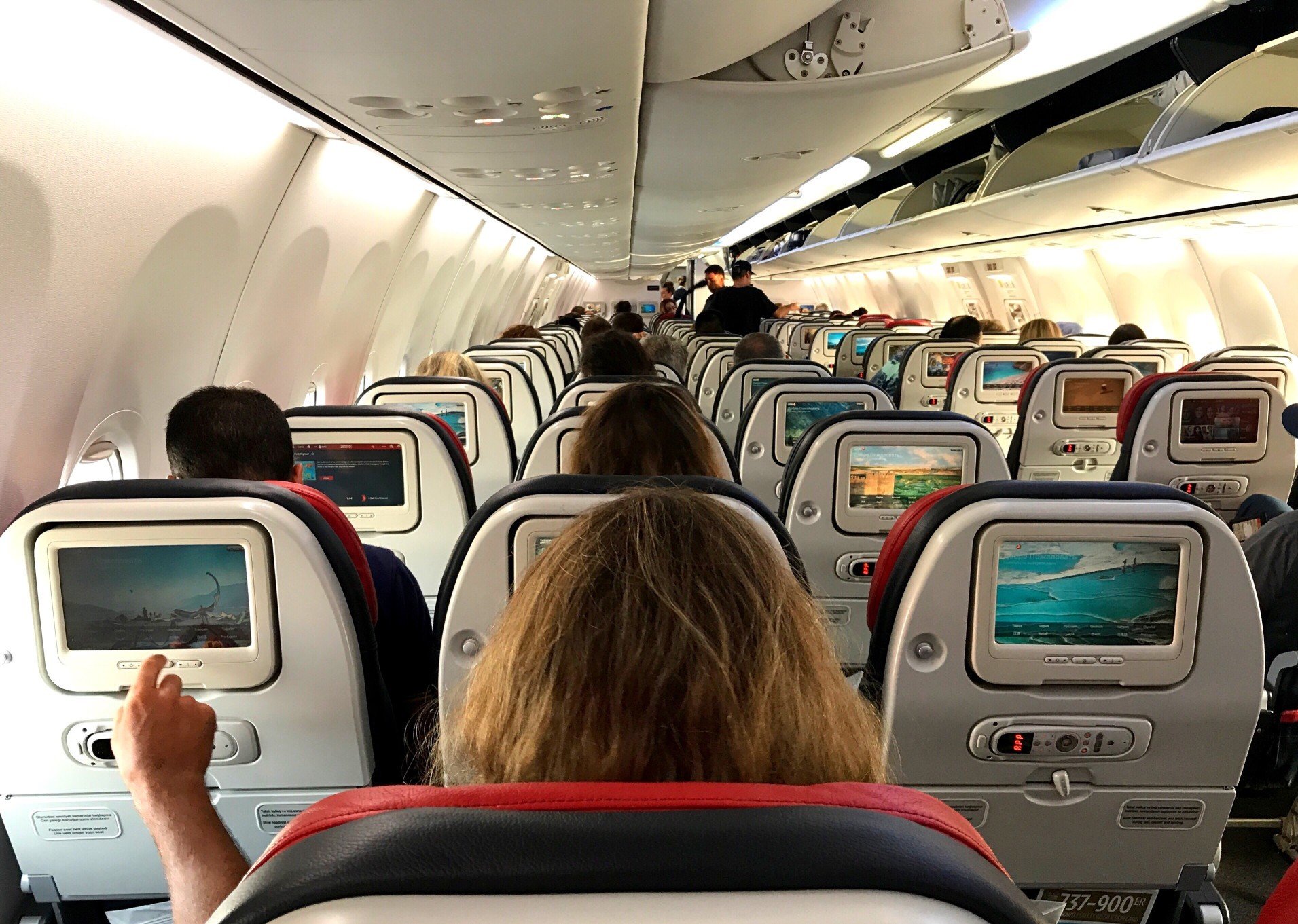
Most of us have been "that person" during a flight without even realizing it — and nearly everyone who has ever flown has certainly encountered "that person" during a flight. But the thought of being the passenger that others onboard gripe about — or worse, write intense live Tweets about — is enough to make us reach for the complimentary puke bag in the seat pouch. There are some simple rules of etiquette that apply to basically all situations in which we're next to others in confined spaces for a long time, of course. Anyone who has a cold and still has to fly should wash their hands several times throughout a longer flight and on short flights, certainly right beforehand. They should also use a cough suppressant and carry a big pack of tissues. Generally, not making overly loud phone calls — even on the ground after landing — is considered pretty cool too.
Read on to find out how to help create a better in-flight experience for everyone present — and learn some other tips specifically for flying when accompanied by kiddos. Remember, we don't have to apologize for having kids — as sweet as those little gift bags some moms give out to passengers are, they're not necessary — but there are some ways to make the flight experience better for us, our children, and those around us.
For anyone with a baby, it's a good idea to check out tips for packing an efficient, lightweight carry-on. It'll definitely help jump-start a personalized list for making a happy in-flight experience. Another effective way to prep? Check out these questions to ask before boarding a plane with a baby. And for moms who are choosing to breastfeed, take a peek at must-know tips for breastfeeding on a plane, which can help make that more comfortable and easier. Anyone with a kid 12 to 36 months old should take a look at tricks for traveling by plane with toddlers.
Should: Pack Important Items in Underseat Luggage

To have the best travel experience possible, keep certain items close during the flight. For instance, items such as phone chargers and medications that we may want to grab at any given time should be packed in the bag kept under the seat, not in the carry-on luggage overhead. Avoid going up there whenever possible — nobody wants to rearrange the bags of others or, worse, get knocked in the head by a falling bag.
Shouldn't: Drink Too Much
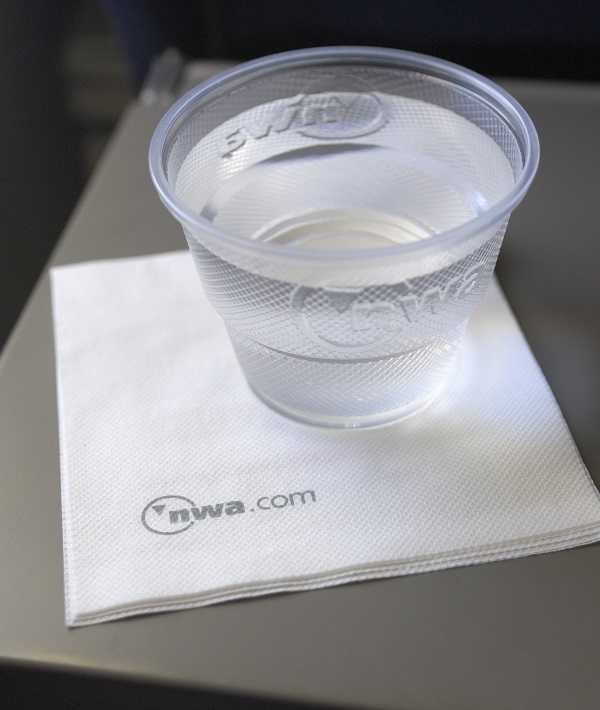
No one enjoys using the lavatories on planes. Although it's a good idea to stay hydrated by drinking water in flight, avoid waiting in annoying bathroom lines by watching how much gets consumed before boarding the plane. Avoiding too many caffeinated or alcoholic beverages is a good idea too. Both kinds of drinks can dehydrate us too much.
Should: Wear as Much as Possible
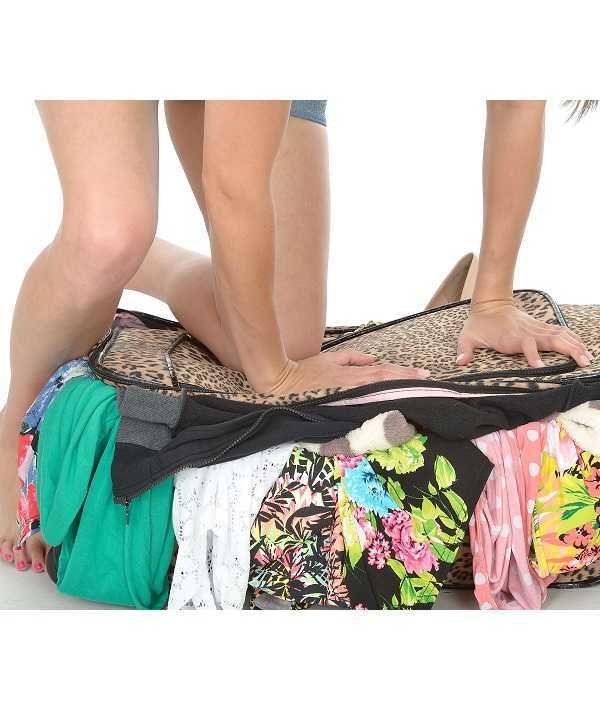
Those of us who have a hard time editing down what we want to pack should heed this tip: Wear as many layers as possible. The weight allowance for bags can seem restrictive, but tying an extra sweatshirt onto a carry-on bag to cut down luggage poundage is a legit option. Because it's usually freezing onboard (and who knows who has used that blanket today), this can also be a practical way to stay warm while in the air.
Shouldn’t: Bring Odorous or Fast Food Onboard
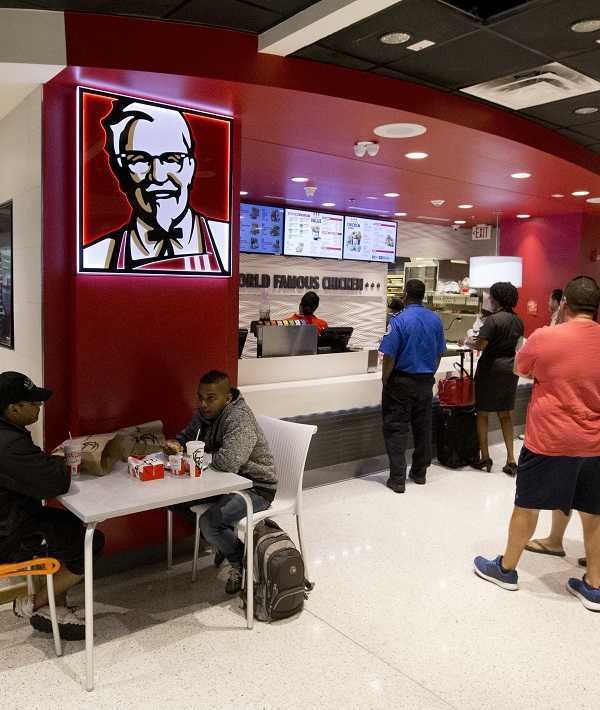
Many people opt for bringing food from home or the airport over purchasing expensive, often icky plane meals (and sometimes food services aren't offered on shorter flights). Even though this is allowed, it's a very good idea to be considerate of fellow passengers and avoid food with strong smells. The lingering scent of fast food or a tuna sandwich is uncomfortable for the entire plane … don't be that person.
Should: Use the Overhead Bin Above the Seat
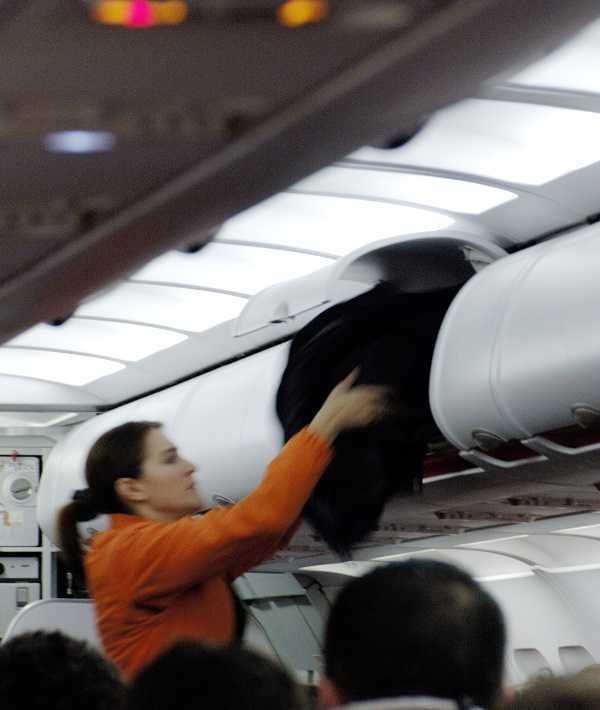
When boarding the plane, it's a good idea to place any carry-on luggage in the overhead bin directly above our own seat — not the first row with a free space. Also, only one piece of luggage should go up there, whereas a personal item (or second bag) should always go under the seat. If everyone did this, disembarking planes would be much quicker and much more efficient.
Shouldn't: Wear Contacts
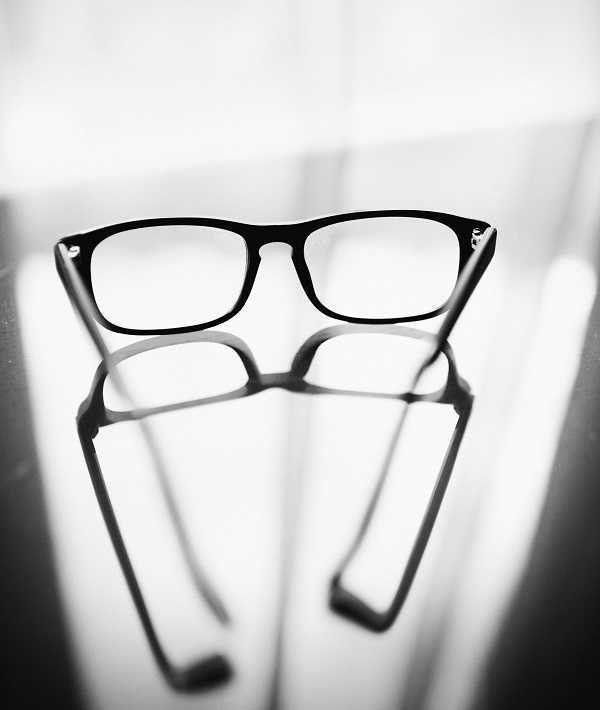
The pressurization and high altitude of airplanes make the air notoriously dry. For those of us who wear contacts, this is the perfect recipe for uncomfortable eyes in the sky. Consider removing contacts before the flight and wear glasses instead — and pop those contact lenses right back in after landing.
Should: Sit Down Immediately
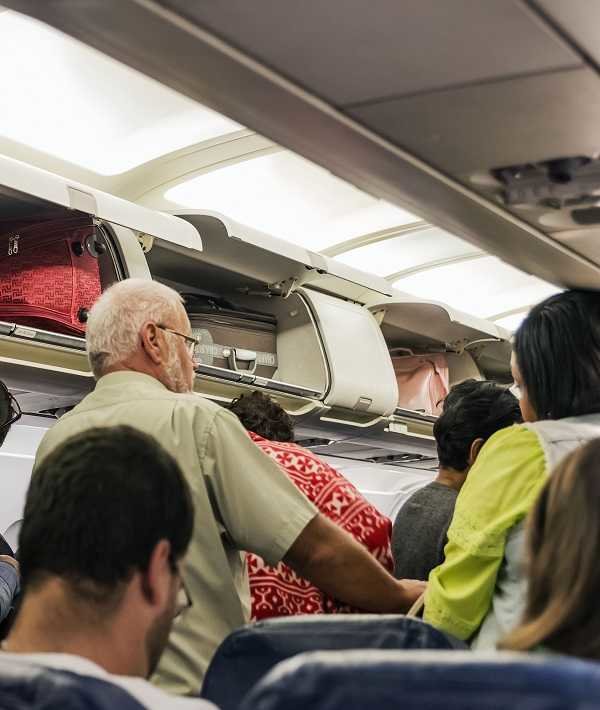
It's unanimous that everyone on the plane is frustrated with the family who can't figure out who is sitting where, and as a result, a line backs up down the aisle until they figure it out. It inconveniences others, including crew members who need to keep to a tight schedule. Know every seat assignment before boarding, and take it as soon as possible after securing bags — then let others through to their seats before rearranging anything.
Shouldn't: Ignore Safety Instructions
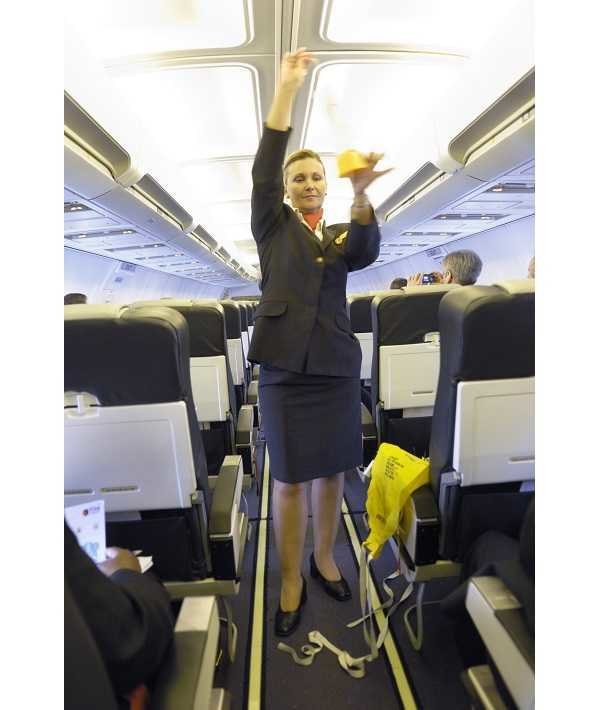
Even folks who have flown a hundred times before shouldn't feel so confident about their knowledge that they should ignore the emergency safety procedures. Official regulations change all the time, and new airplanes have different exit instructions. Zoning out during the emergency landing instructions could mean the difference between life and death in a real-life situation — so listen up every time.
Should: Keep the Vent On
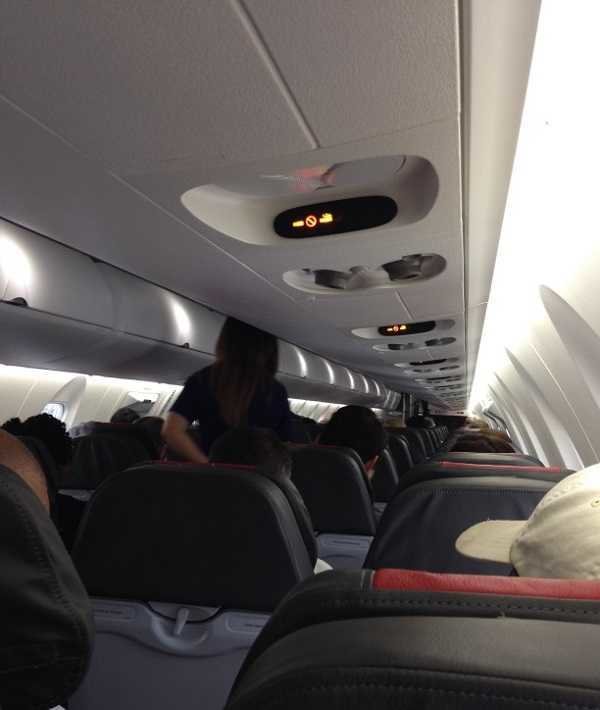
It's better to cover up with a sweater if the stream of air coming from the overhead nozzle feels a little chilly. That gust of air blasts germs that have the potential to make us sick. A chill now can prevent an actual cold (or worse) later.
Should: Pay Attention to the Lights
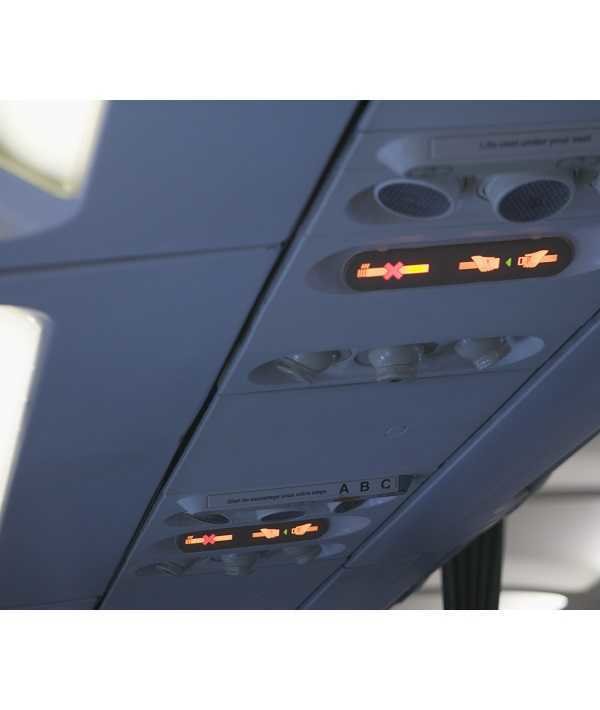
Similar to the safety instructions, too many people completely ignore the seat belt indicator light when it's illuminated, alerting passengers to remain seated. Flight attendants sometimes even need to approach people standing up while the light is on to ask them to comply. Those lights are turned on to communicate with everyone on the plane and keep us safe. The crew has much more information about the current conditions of the flight than we do, so if the light is on, there's a reason why. Crew members actually put themselves at risk to ensure we're as safe as possible.
Shouldn't: Overuse the Call Button
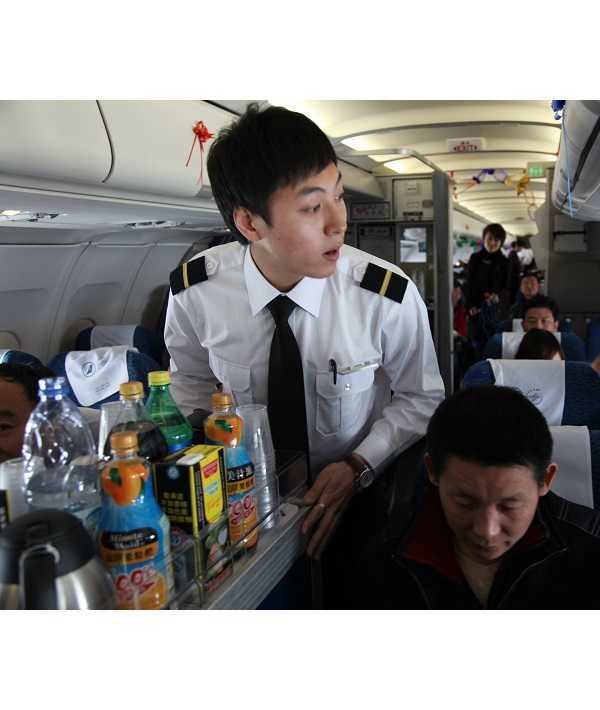
The flight attendants aren't lying when they say they're happy to be of service, but understand that they have the tasks of being a server, safety coordinator, and ambassadors for their cultures and companies, sometimes to hundreds of people all at once. This means they're constantly helping with luggage, distributing food and drinks based on individual preferences, all while scanning the plane (with a smile) for inevitable call buttons and unexpected issues that arise. Be grateful to these hard-working employees by being courteous and not abusing the call button.
Should: Be Mindful of Armrests
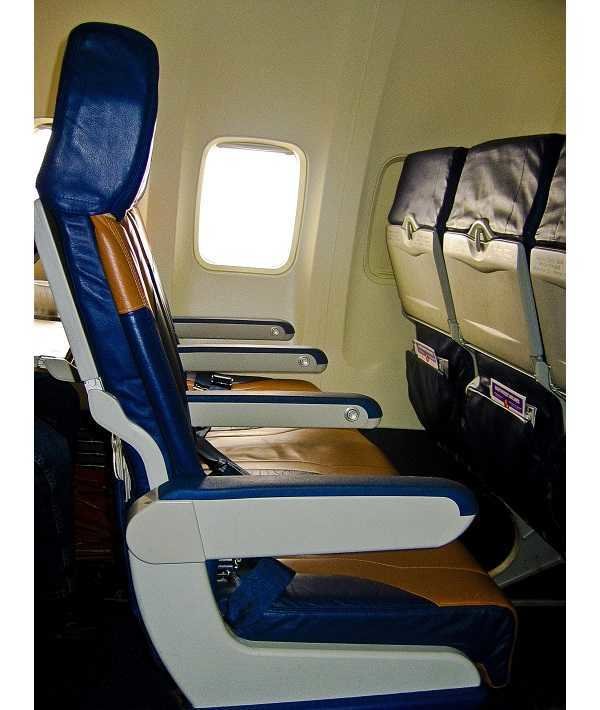
Granted, airlines haven't been the best at designing armrests in three-seater rows. Either the person in the middle hogs both, or they plug their headphones into the wrong outlet without thinking — it's an easy mistake to make, but be mindful.
Shouldn't: Recline During Mealtimes
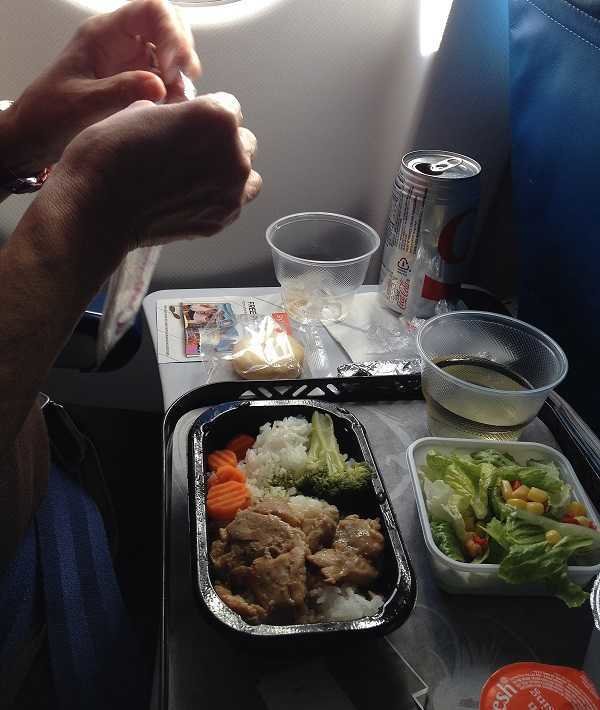
Here's another one of those things that would have a ripple effect if everyone followed suit. When the carts begin their way down the tight aisles, everyone knows what time it is. We may not necessarily be enjoying food or drink every time this happens, but if we are, the people in front of us would be doing us a service to return their seats to the upright position so we can eat comfortably. We should do the same and try not to recline during mealtimes.
Should: Take Advantage of Amenities
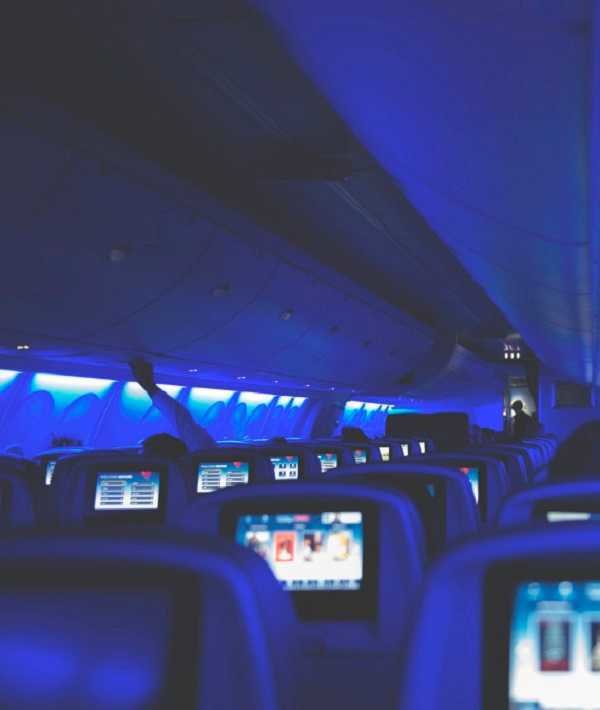
Again, it's possible we might not be hungry or want to sleep our way through a flight, but that doesn't mean we should ever miss out on freebies! Don't want that snack now? Pack it in a carry-on to munch on later. Are exclusive TV shows, movies, or documentaries available in-flight? Now is the time (while we're just sitting there) to catch up on that show we've been meaning to watch or see that movie that left theaters when we finally made time to go. Just saying.
Should: Move Around
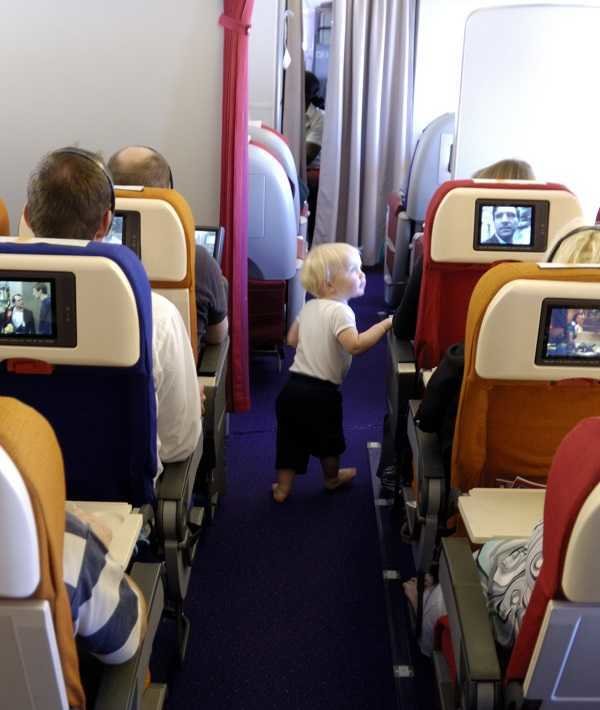
Don't get stuck in the seat for the entire duration of the flight. When we sit in the same position for hours, our blood doesn't circulate the way it needs to. This can cause problems for passengers who already have circulation issues. When the "fasten seat belt" sign is off, take a stroll or two up and down the aisles. For those who must stay seated, move limbs in small, circular motions while sitting to increase blood flow.
Shouldn't: Go Barefoot
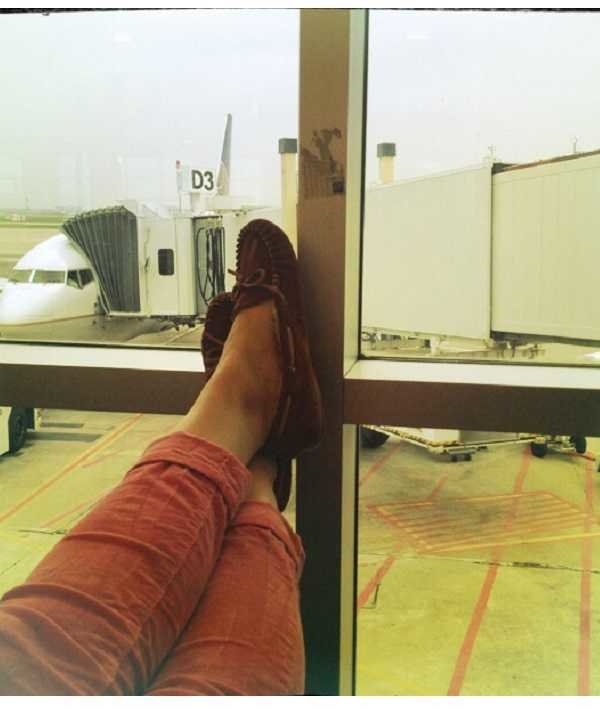
Admittedly, taking shoes off when flying can relieve stiffness for some. But for our own good, keep feet covered up. The floors of a plane have a collective cocktail of germs from people transferring between regions, bringing whatever filth their shoes have picked up onboard the plane. When we go barefoot, we invite this combination of germs to come into contact with our skin. Also, we may not be able to smell our own body odor, but it's possible everyone else can. Avoid the unpleasant stares, and plan to wear more comfy shoes onboard the plane (and maybe slip 'em off to just socks-only for a few hours).
Should: Allow Front Rows Off First
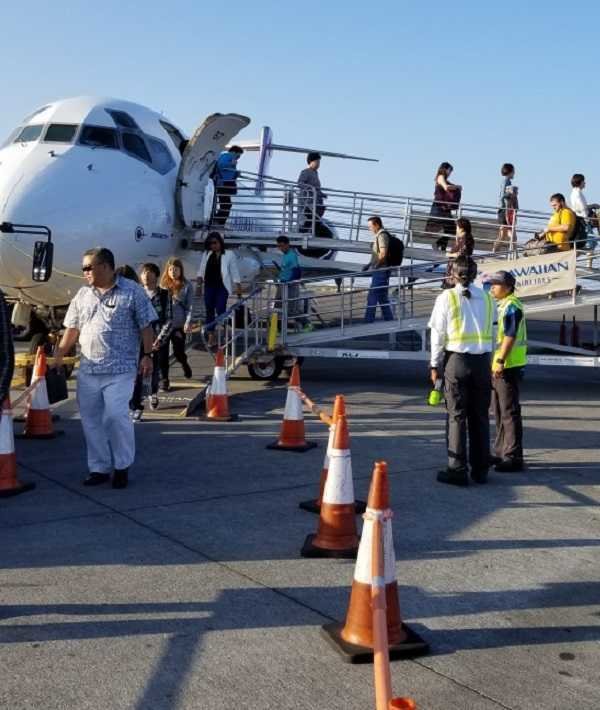
The closer a row is to the front of the plane, the faster and easier it is for all involved to retrieve their bags (from their own overhead bins), and so on until the last row has cleared out. When passengers are pushy and jump ahead of their turns, they disregard the reasons of why disembarking systems are in place, including the possibility of special accommodations for disabled or elderly people. Respecting others leads to a good flight.



